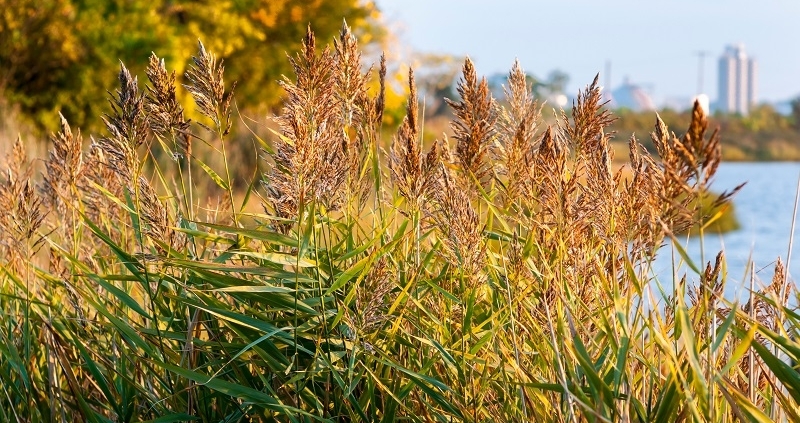New White Paper Details Methods for Controlling Invasive Species on Corporate Lands
BETHESDA, MD, May 18, 2023 – WHC (Wildlife Habitat Council) offers a new white paper available for download today, Restoring Ecosystems Through Invasive Species Control | Methods for Preventing, Monitoring and Eradicating Invasive Species on Corporate Lands. The white paper is sponsored by Ontario Power Generation and is available for free on our website.
Invasive species are among the top five threats to biodiversity worldwide. When plant or animal species are introduced into an ecosystem outside of their native habitat, they lack the factors that previously limited them and are able to proliferate in this new environment, leading to a large homogeneous population that outcompetes native species for resources. Considering the wide-ranging impact of non-native flora and fauna on the environment, economy and human health and safety, managing and controlling the spread of invasive species is a key element of conserving habitats and protecting native wildlife.
As privately owned lands make up a vast amount of the earth’s land surface, it is imperative that the corporate sector become an active player in invasive species management efforts. Controlling invasive species on corporate lands can become a vital part of an existing habitat restoration project, and efforts to prevent and eradicate invasive species also provide opportunities for corporations to involve the local community. This white paper details the key methods corporations can use to control invasive species, restore native habitats and educate the surrounding community.
Featured case studies include:
- Bruce Power: Bruce Site, Ontario, Canada
- California Resources Corporation: Bolsa Chica Wetlands Ecosystem Partnership, California, USA
- Constellation: Quad Cities Generation Station, Illinois, USA
- Dupont: Asturias, Spain
- ExxonMobil: Joliet Refinery, Illinois, USA
- Fidelity Investments: Smithfield, Rhode Island, USA
- Freeport-McMoRan: Port Nickel, Louisiana, USA
- General Motors: Guangde Proving Ground, Anhui, China
- ITC: ITC Corporate Headquarters, Michigan, USA
- WM: Crossroads Landfill, Maine, USA
Sponsored by Ontario Power Generation, this white paper includes a foreword from Heather Brown, Vice President, Environmental Health & Safety, who states, “Ontario Power Generation (OPG) is dedicated to safeguarding and improving the biodiversity of its properties. We recognize that managing invasive species is not only crucial to protecting sensitive ecosystems but also to combatting the effects of climate change. OPG aims to responsibly manage these species, replacing them with native species to aid in carbon sequestration and mitigate the impacts of climate change. Managing non-native species on OPG properties also contributes to the Wildlife Habitat Council certifications at many of our sites in Ontario, Canada, and supports an ecosystem approach to conservation and ecosystem restoration.”
About WHC:
For 35 years, WHC has been promoting and certifying ecological stewardship action on corporate lands through partnerships and education. Since only 10-15% of the world’s land surface is protected, private lands provide an essential opportunity for restoring and protecting biodiversity. As the only international conservation NGO focused exclusively on the private sector, WHC provides a framework for voluntary conservation action on a wide variety of corporate lands. WHC’s corporate members represent some of the leading national and multinational corporations seeking to support sustainable ecosystems and the communities that surround them. These efforts have resulted in more than 1,000 certified programs across 47 states and 28 countries.



